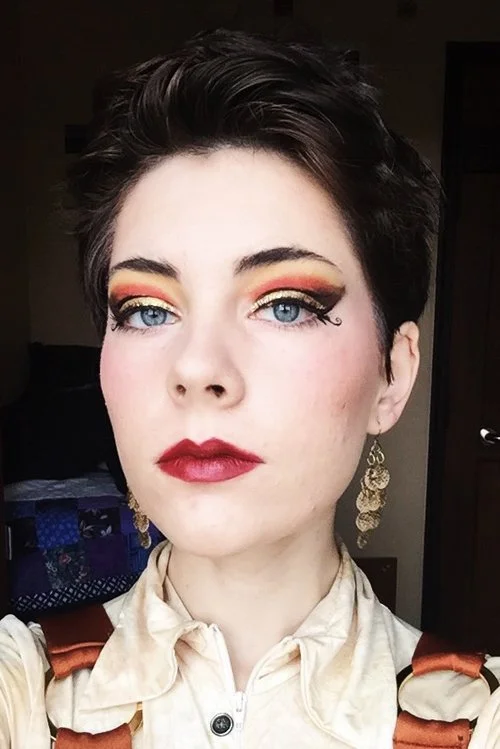Quad Style: Fatima Eldigair
"I'm not cool enough, though" first-year Fatima Eldigair said when I asked if I could interview her for MODA. She couldn't be more wrong. Influenced by her identity as a black woman, her Sudanese heritage, and her poetry, Fatima talked with us about how she uses fashion as a political statement, a source of self-actualization, and a tool of the contact zone.
- Brands/stores/designers you support: I have recently been into the brand UNIF. Their clothes are whack in the best way possible. I shop a lot on ASOS because they are very body positive and inclusive.
- Favorite purchase: a 21 Savage tee
- Hashtag that describes your style: #agency
Describe the evolution of your sense of style:
My fashion has evolved into a more sophisticated and Black version of my scene kid style growing up.
Both poetry and fashion are intimately dependent on form as much as content. As a poet, how do you play with form and content in your writing and on the runway?
Poetry is about two things: style and rhythm. Beyond those two criteria, you can invent your own rules. My poetry is an extremely personal mode of healing and reflection. Within it I explore content such as diaspora, racism, and heartbreak using a form that is either highly structured or painfully casual. The style of my poetry directly correlates with how I am processing my thoughts.
My fashion works in the same manner. Sometimes I wear looks that are constructed and sleek because I feel really put together and want to show that off. Other times I wear outfits that are quite eccentric and bold because I feel experimental and unsure of myself. Like my poetry, my style serves as a source of self-actualization.
What's your favorite trend this season, or of all time?
I am currently really into the fishnet tights trend. Fishnets are a really interesting cultural object for me. Growing up, I was conditioned to view fishnets as trashy because it was a garment that was traditionally associated with individuals who worked in the sex industry. My grandmother forbade me from wearing them because she viewed them as “trashy” and “slutty.” It’s ridiculous that an article of clothing can become the source of misogyny. Incorporating them in everyday outfits does feel like an act of rebellion. And all fake deepness aside…they’re just cute.
How do your roots as a Sudanese woman in Chicago influence your style choices?
Growing up as a second-generation immigrant in America, I'm constantly fighting an internal cultural identity battle. I feel like a foreigner in both my homelands. With fashion, I try to reconcile that struggle by embracing and rejecting certain aesthetics dominant in both cultures.
For example, I have no aversion to bright colors because I grew up surrounded by women who wore the traditional Sudanese thobe in every hue imaginable. But I've also abandoned the deep sense of modesty imbedded in Sudanese fashion, and instead embraced the sense of free expression that Chicago cultivates. Fashion has the potential to be a mode of navigating diaspora.
Fashion is an incredible art form because it requires people to engage with it, and mass-produced pieces can be made personal. That said, do you think there is a wrong way to engage with fashion?
In the digital age, the way we interact with fashion and curate our styles has radically changed. There is a constant pressure to present yourself in a way that is very “instagrammable.” A lot of instastars simply wear expensive labels and streetwear and think that they are serving a unique and subversive look. There is nothing subversive about recreating other people’s aesthetics and relying on brand recognition. When you use fashion as a form of imitation rather than expression, it becomes an exhausting endeavor.
“I just wear whatever I like without political agenda in mind, and that has been the most revolutionary act of self-expression for me.”
- Closet you want: my grandmother's
- Something you're trying to make cool: the beret. My friend Ayo called it pretentious, and honestly... she is right. But I will prove her wrong one day!
Do you think of what you choose to wear as a political statement? An artistic statement? Both? Neither?
As a black woman, everything I do is political whether intentional or not. The way I decide to style my hair and the parts of my body I choose to extenuate convey a specific message about my relation to black womanhood. I used to be very conscious of this fact and would always dress myself in clothing that would undermine traditional expectations of black femininity. But that required way too much time and devotion. Now I just wear whatever I like without political agenda in mind, and that has been the most revolutionary act of self-expression for me.
All pictures courtesy of Jaire Byers. View his photography portfolio here.










